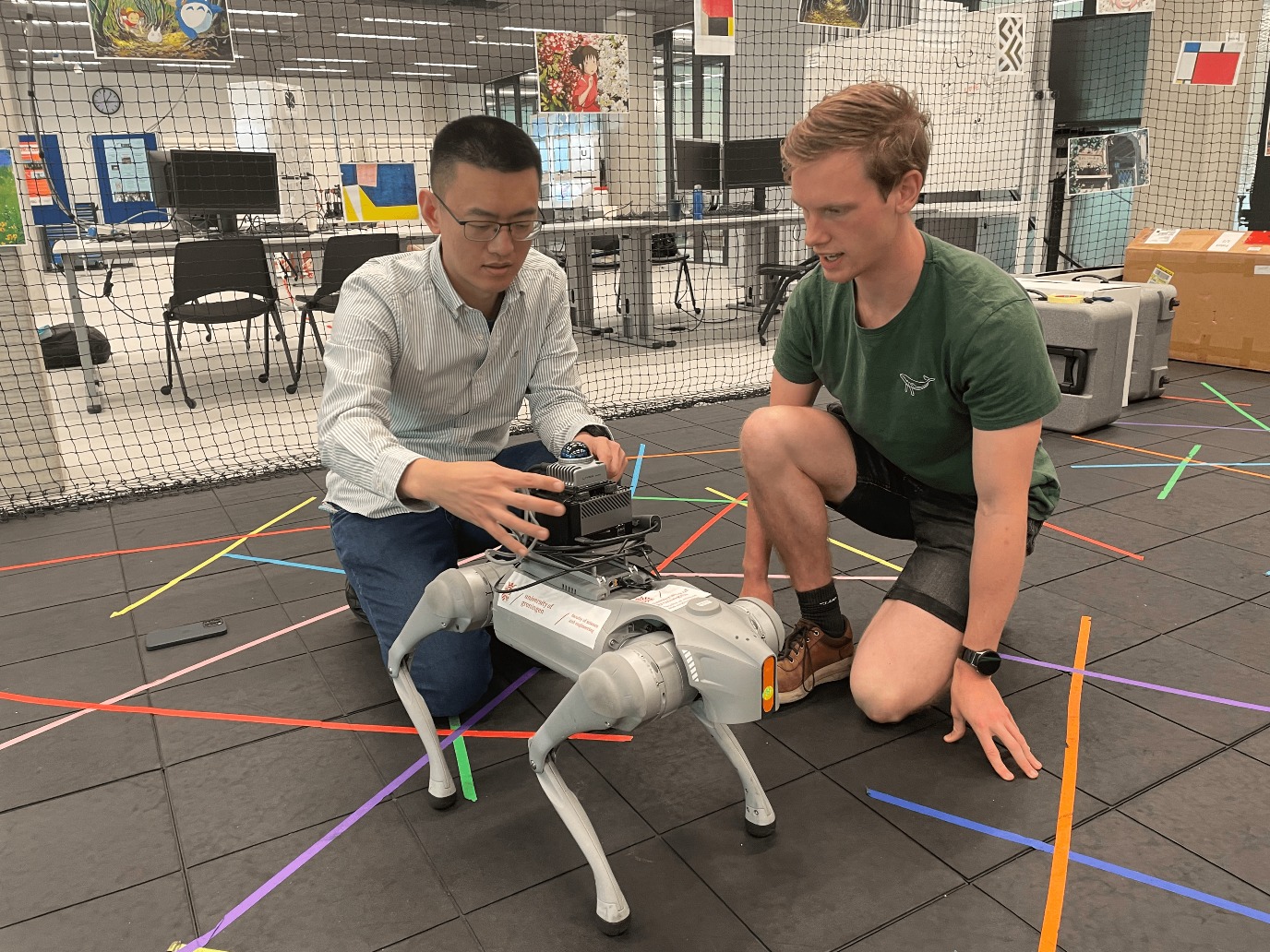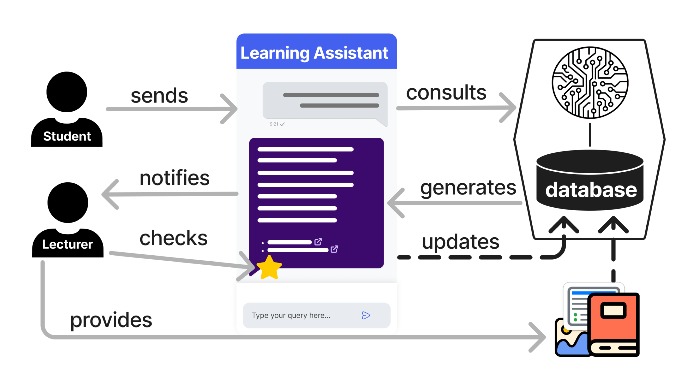Three Comenius Teaching Fellow grants for teaching innovation at Faculty of Science and Engineering
Researchers at the Faculty of Science and Engineering (RUG) have received Comenius Teaching Fellow grants from the National Educational Research Organization (NRO). Dr. Kailai Li receives the grant for a practical course that prepares students for future jobs in the high tech industry, Dr. Deniz Haydar together with Dr. Sofie van den Eynde for developing an undergraduate elective in which students gain experience in evidence-informed learning activity development. Dr. Daniel Feitosa and Dr. Brian Setz will receive the grant for designing an AI learning assistant with students.
The NRO awards the annual Comenius grants on behalf of the Ministry of Education, Culture and Science. These grants enable teachers to bring their vision on teaching into practice. These grants for educational innovations are inspired by the well-known Veni, Vidi, Vici grants for research.

Dr. Kailai Li (Bernoulli Institute) | 'Fostering High-Tech Intellectual Resources Beyond State of the Art: A Pilot of Research-Oriented Education in Intelligent Cyber-Physical Systems'
The demand for smart technological solutions is growing rapidly - think self-driving vehicles, digital healthcare and service robots. Particularly in the Northern Netherlands, this creates a strong need for well-trained professionals with in-depth knowledge as well as practical experience. As researchers in mobile robotics and embodied AI, Dr. Li and his team are bringing their application-oriented research expertise and skills into the classroom to sustainably empower the next generation of high-tech innovators. Through content-based educational innovation, their practical course mirrors the innovation process in industrial R&D procedures, tightly coupling education, research, and entrepreneurial innovation.

Dr. Deniz Haydar (Faculty of Behavioral and Social Sciences) and Dr. Sophie van den Eynde (Center for Learning and Teaching FSE) | Learning to value teaching: ‘Learn, teach, appreciate’
Too few science students choose careers as secondary school teachers. By giving undergraduate students in the Faculty of Science and Engineering experience in evidence-informed development of learning activities, they will gain more enthusiasm and appreciation for the teaching profession. During a newly developed undergraduate elective, students are introduced to learning and teaching theories, STEM didactics, and their specific application. In a small-scale project, they collaborate with teacher participants on an educational innovation in their own undergraduate course. These teaching experiences contribute to educational improvement in faculty and may ultimately lead to increased enrollment in teacher education. Haydar is collaborating in this project with Dr. Sofie van den Eyndeand collegues of the teacher training programme of the faculty of Behavioral and Social Sciences (GMW).

Dr. Daniel Feitosa and Dr. Brian Setz (Bernoulli Institute) | 'A Students-First Approach to Developing AI-based Systems'
How can students learn to build trustworthy AI systems—while using them? In this project, Computing Science students help design a course-specific AI learning assistant that answers questions using actual course materials. The Digital Lab (the RUG team working on innovative education infrastructure) builds the system, which the students use as a living lab for their assignments. This gives students hands-on experience with real-world software development, including ethical and legal considerations. The assistant will be open-sourced and improved over time, becoming a lasting tool for education. Students aren't just using AI—they're shaping its future.
The Comenius programme contributes to the innovation and improvement of secondary vocational education and higher education in the Netherlands. The programme includes three different grants: the ‘Teaching Fellow’, ‘Senior Fellow’ and ‘Leadership Fellow’ grants. The grants enable education professionals to put their ideas for educational innovation into practice.
More news
-
29 January 2026
Microplastic research - media hype or real danger?
-
27 January 2026
ERC Proof of Concept grant for Maria Loi
